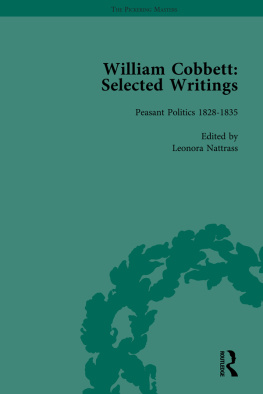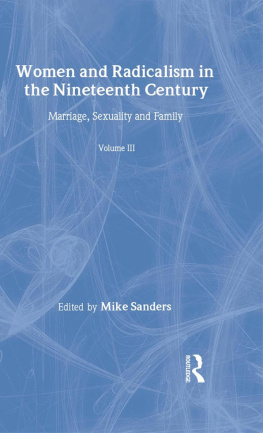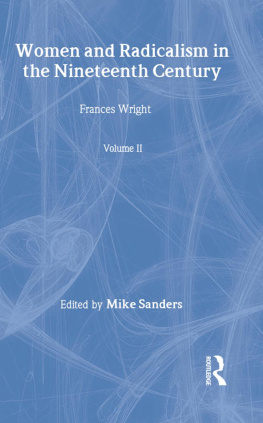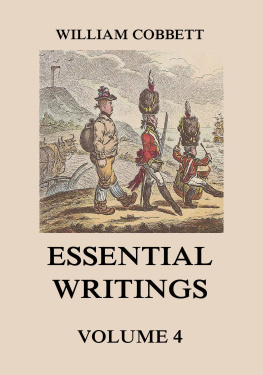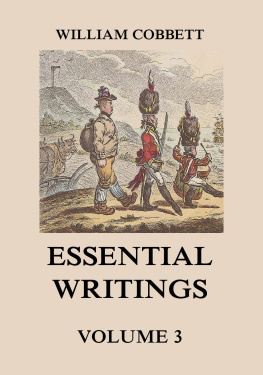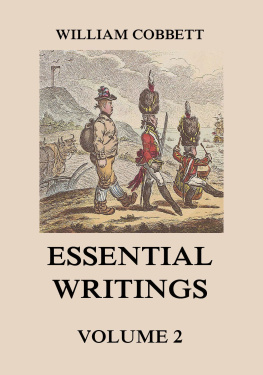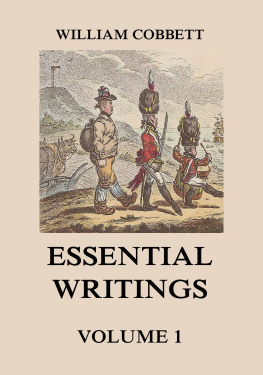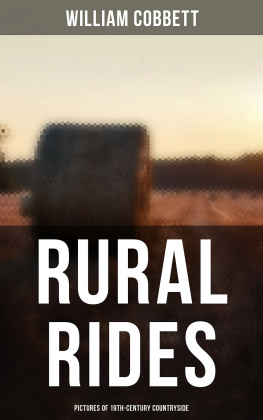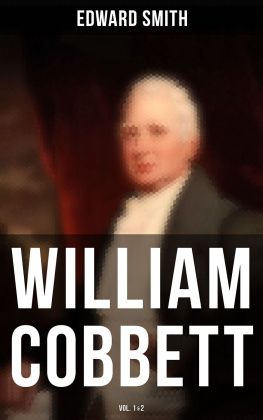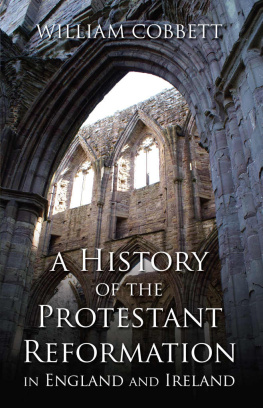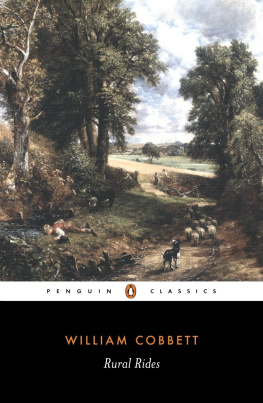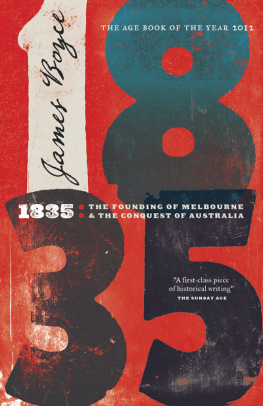First published 1998 by Pickering & Chatto (Publishers) Limited
Published 2016 by Routledge
2 Park Square, Milton Park Abingdon, Oxon OX14 4RN
711 Third Avenue New York, NY 10017
Routledge is an imprint of the Taylor & Francis Group, an informa business
Copyright Taylor & Francis 1998
All rights reserved. No part of this book may be reprinted or reproduced or utilised in any form or by any electronic, mechanical, or other means, now known or hereafter invented, including photocopying and recording, or in any information storage or retrieval system, without permission in writing from the publishers.
Notice:
Product or corporate names may be trademarks or registered trademarks, and are used only for identification and explanation without intent to infringe.
B RITISH L IBRARY C ATALOGUING I N P UBLICATION D ATA
Cobbett, William, 17631835,
Selected writings. (The Pickering masters)
1. Radicalism Great Britain History 18th century
2. Radicalism Great Britain History 19th century
3. Great Britain Politics and government 17631835
I. Title II. Nattrass, Leonora
941.073
ISBN 13: 978-1-13876-604-4 (hbk) (vol-6)
LIBRARY OF CONGRESS CATALOGING-IN-PUBLICATION DATA
Cobbett, William, 17631835.
The early writings, 17921800 / edited by Leonora Nattrass ;
Advisory editor, James Epstein.
p. cm. -- (William Cobbett--selected writings ; v. 1)
(Pickering masters)
Includes bibliographical references and index.
ISBN 1-85196-375-8 (set : alk. paper)
1. Great Britain--Politics and government--17891820--Sources.
I. Nattrass, Leonora. II. Epstein, James. III. Title. IV. Series:
Cobbett, William, 17631835. Selections. 1998.
DA522.C5A25 1998
941.073dc21
9825548
CIP
Typeset by The Florence Group, Stoodleigh, Devon
CONTENTS
Fires in Kent and Sussex. To the Working People of England (1830)
A Letter to the Kings Ministers on the way to put a stop to the Fires (1831)
To the Labourers of England on their Duties and their Rights (1831)
To the Labourers of England. Observations to Labourers, on the subject Of Parliamentary Reform (1831)
To the Labourers of England. Instructions to Labourers for raising Cobbetts Corn (1831)
To the Working People of the Whole Kingdom, on the Effects Which A Parliamentary Reform Will Have With Regard to Them (1831)
To the Labourers of England, on the Projects for Getting Them Out Of Their Native Country (1831)
A full and accurate report of the trial of William Cobbett, Esq. (1831)
To the Working People, on the scheme for withholding the Ten-Pound Suffrage in Great Towns (1831)
To the Yeomanry Cavalry: On the Fires (1832)
To the Electors under the Reform Bill. On the caution which they will now have to exercise, and on the duties which they will have to perform (1832)
To the Working People. The Reform Festival, to be held in Hampshire, on 7th July, 1832 (1832)
Chopstick Festival. At the Hamlet of Sutton Scotney, in Hampshire (1832)
To the Cobbettites on the Elections, and more Particularly Those of Oldham and of Manchester
Cobbetts Legacy to Labourers; What is the Right which The Lords, Baronets, and Squires, have to the Lands of England
- Fires in Kent and Sussex. To the Working People of England (1830)
- A Letter to the Kings Ministers on the way to put a stop to the Fires (1831)
- To the Labourers of England on their Duties and their Rights (1831)
- To the Labourers of England. Observations to Labourers, on the subject Of Parliamentary Reform (1831)
- To the Labourers of England. Instructions to Labourers for raising Cobbetts Corn (1831)
- To the Working People of the Whole Kingdom, on the Effects Which A Parliamentary Reform Will Have With Regard to Them (1831)
- To the Labourers of England, on the Projects for Getting Them Out Of Their Native Country (1831)
- A full and accurate report of the trial of William Cobbett, Esq. (1831)
- To the Working People, on the scheme for withholding the Ten-Pound Suffrage in Great Towns (1831)
- To the Yeomanry Cavalry: On the Fires (1832)
- To the Electors under the Reform Bill. On the caution which they will now have to exercise, and on the duties which they will have to perform (1832)
- To the Working People. The Reform Festival, to be held in Hampshire, on 7th July, 1832 (1832)
- Chopstick Festival. At the Hamlet of Sutton Scotney, in Hampshire (1832)
- To the Cobbettites on the Elections, and more Particularly Those of Oldham and of Manchester
- Cobbetts Legacy to Labourers; What is the Right which The Lords, Baronets, and Squires, have to the Lands of England
Guide
Cobbett died in 1835 at the age of seventy-two, but these texts, taken from a four-year period between 1830 and 1834, are by no means the writings of retirement or retreat. They begin with Cobbetts influential response to the Captain Swing riots in his newly-launched Twopenny Trash, and end with his Legacy to Labourers which is in many ways a summation of the most important aspects of his thought on legal and Constitutional matters.
As elsewhere, these texts are notable for their ideological consistency and rhetorical unity. The Twopenny Trash debates a number of issues - corruption, misuse of the tithes, Malthusian population theory, Captain Swing, and the Reform Act - and yet approaches each through a focus which unifies all these as aspects of the plight, and the rights, of the poor. Similarly, Cobbett focuses his self-defence during his trial of 1831 by dwelling on the trial and execution of the Swing rioter Henry Cook, hanged, unjustly Cobbett claims, for an assault on Bingham Baring; the son of the Banker. And in A Legacy to Labourers, he argues against Malthusian Poor Law reform by stressing the equal value of the poor and their equal rights under the ancient constitution of England.
Launched in the summer of 1830, and ending with the passage of the Reform Act in 1832,
The cheap paper contained a mixture of off-prints from the Political Register (a strategy reminiscent of the 1816 two-penny enterprise) and of pieces specially written for the paper. Cobbetts audience is, as before, the labouring and particularly agricultural poor, and the papers claim to significance is its role in focusing those Radical activities which, Cobbett claims, led directly to the passage of the Reform Act. My selections concentrate on a limited number of the issues covered by the paper - the luxury of the elite versus Malthusian restrictions on the poor, the Captain Swing fires, and the agitation for Reform Act - in order to show the argumentative and rhetorical progression of Cobbetts presentation of these topics.
As in 181617, Cobbetts writings speak of a moment of crisis, and the possibility of change to be achieved through the direct intervention in affairs by the labouring classes. But whereas in 1816 Cobbetts certainty that change must come is based on an economic analysis which predicts disaster, by 1830 the economic liberalism which Cobbett associates with the new order (responsible for the sufferings of the poor) is firmly entrenched and seems unassailable. When the labourers riot in 1830, Cobbett does not predict revolutionary change (as he had effectively done in 1816 despite his protestations to the contrary) but a more equitable distribution of power. In other words, the heady excitement of 1816 when annual Parliaments and manhood suffrage seem briefly possible, is replaced in these writings with a harder-nosed pragmatism where the 10 suffrage is the best that can be achieved, and the role of Radical politicians in a reformed Parliament is to offer representation and a voice to the people, in dialogue with the entrenched commercial culture.

